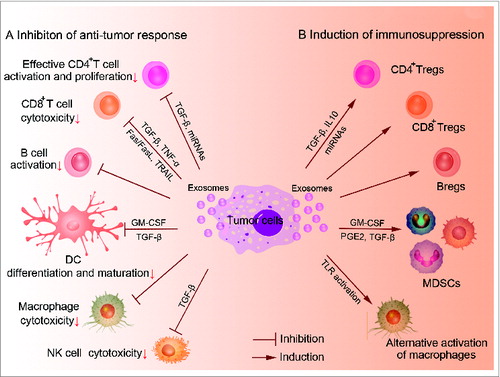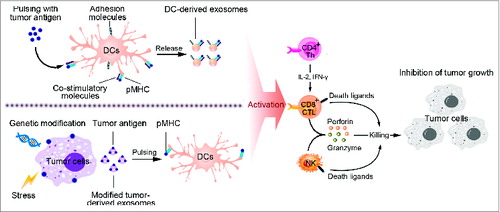Figures & data
Figure 1. Exosome-mediated immunosuppression of tumor immunity. Exosomes derived from cancer cells have been shown to be involved in the modulation of tumor immunity in various ways: (A) Inhibition of proliferation and differentiation of CD4+ T cells into Th1 and Th17, inhibition of cytotoxicity of CTLs, NK cells and macrophages, inhibition of differentiation and maturation of DCs. (B) Promotion of CD4+, CD8+ Tregs and Bregs generation, induction of myeloid precursor differentiation into MDSCs, alternative activation of macrophages.

Figure 2. Strategies for exosome-based tumor immunotherapy. This figure presents two main strategies for application of exosomes in tumor therapeutics. Exosomes secreted from antigen-loaded DCs carry functional peptide-MHC complexes, co-stimulatory and adhesion molecules and induce activation of CD4+ T cells, CD8+ T cells and NK cells, thus mediating cytotoxicity to tumor cells and inhibition of tumor growth. These molecules can also be exchanged between DCs to induce antitumor immune response indirectly. Additionally, tumor-derived exosomes (TEXs) carry tumor antigens and can trigger efficient antigen presentation of APCs, thus being used as resources of tumor antigens to prepare tumor vaccines. Moreover, modification of TEXs is developed to improve their immunogenicity, such as genetic engineering stress and protein loading.

